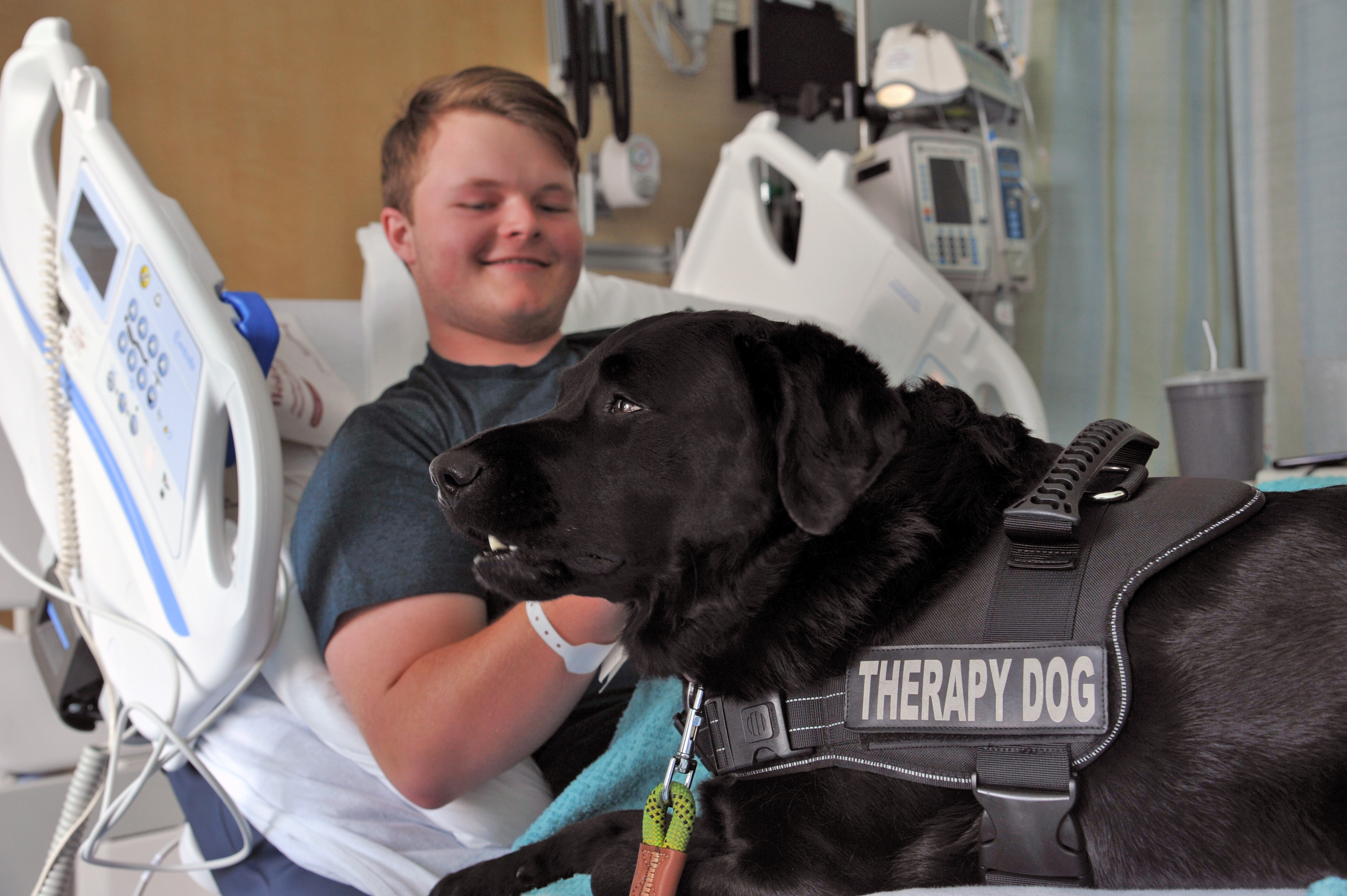Therapy Dog Cares for Patients at CPMC Van Ness Campus

Posey with 16 year old pediatric patient Buddy Pendergast
SAN FRANCISCO–Anxiety and fear are common issues that pediatricians and staff address every day when caring for children inside Sutter’s California Pacific Medical Center Emergency Department. They enlist child life specialists to assist, as well as a very special team member, Posey the Therapy Dog.
Posey partners with emergency department pediatrician, Vince Tamariz, M.D., to see young patients who come in for assistance with an illness or injury. While Dr. Tamariz addresses the health issue, Posey addresses the stress children face when coming into this unfamiliar environment. With a soft and unhurried approach, Posey can easily distract a child from the frightening medical activity that is underway and bring a sense of calm and curiosity to the child, reducing the fear and anxiety.
“When Posey walks into the room kids have something to focus on that is a distraction from what is happening with their care,” said Dr. Tamariz. “Even parents admit that Posey helps relieve the stress they feel resulting from the need to bring their child to the emergency department.”
When there is a break in the activity of the emergency department, Posey can be found on the pediatric floor of the hospital. Posey makes her rounds, checking in on young patients to see if anyone needs her loving assistance. When she walks into a room spirits lift and children have a break from the ailments that bring them to the hospital. While patients love to see Posey and pet her soft fur, she will also hop up on the bed—when invited—to lay beside a patient who may have difficulty reaching her or getting out of the bed.
Many studies show that petting a dog makes you feel good; it increases oxytocin in the body, which amplifies feelings of happiness and empathy. It also lowers the heart rate, decreases blood pressure and reduces cortisol (the stress hormone). These results can make a big difference for children in the hospital.





